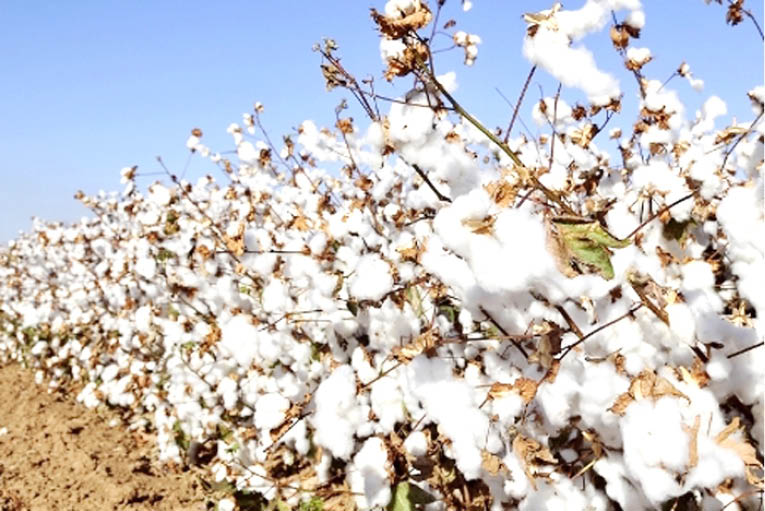As planting begins, Katsina farmers prioritize cotton, rice, onions
…only few go for maize, soya beans because of glut As crop planting begins in Katsina State, majority of farmers in the state are concentrating on rice, onion and cotton farming this year, Daily Trust on Sunday investigations have shown. Farmers in Funtua, Faskari, Kankara, Bakori, Malumfashi and Musawa axis mainly concentrate on cotton, rice […]

A cotton plantation at full bloom
…only few go for maize, soya beans because of glut
As crop planting begins in Katsina State, majority of farmers in the state are concentrating on rice, onion and cotton farming this year, Daily Trust on Sunday investigations have shown.
Farmers in Funtua, Faskari, Kankara, Bakori, Malumfashi and Musawa axis mainly concentrate on cotton, rice and onions, while those in the far northern part of the state are mainly planting millet and sorghum.
Cross session of the farmers, who spoke with our correspondent in the state said only few farmers will cultivate maize and soya beans this year because of its low market price in comparison with the price of fertilizer.
“Soybeans too was not prominently planted as the farmers pick interest in rice and cotton which government is trying to revitalize its industry,’’ one of the farmers, Yusuf Alhassan said.
Meanwhile, our correspondent reports that full farming activities have resumed in earnest in the state immediately after Sallah festivity as farmers were seen ploughing, harrowing or planting their farmlands.
Fasting had earlier halted the planting activities despite adequate rainfall which supposed to have kicked off in the month of May.
Yusuf Alhassan, a farmer, said besides the fasting, most of the farmers wanted to finish with the expenditures of Sallah ceremony before venturing into their farms but those who were highly determined to be early planters already have grown up crops in their farms.
“In rain – fed farming, early planting is the best because one cannot envisage the longevity of the rainy season therefore, those who want to cultivate rice especially have no choice than to take off as early as possible. What slowed most of us this year was fasting and shortage of funds occasioned by low market price of grains; but nevertheless some of us have tried to plant early enough and still it is not yet late,” said Yusuf Alhassan.
He added that due to the shortage of funds bedeviling the farmers and coupled with the insecurity in some parts of the state, there were still farmlands yet to be rented and were on the verge of being left un-cultivated.
“Poor price of grains has made some farmers unable to rent large farms, similarly the issue of insecurity in the parts of Kankara, Danmusa, Batsariand Faskari LGAs has instilled fear among farmers who were cultivating crops in the areas in the past,” he said.
Another farmer, Salisu Shu’aibu expressed his satisfaction with the way local farmers now have access to tractors unlike in the past.
“The agricultural policies of both the state and federal governments have seen the proliferation of tractors in the state, a development that is making it easier for local farmers to access the services of such machines like never before,” he said.
He added that the use of herbicides was fast growing among the local farmers which was gradually making the farming less tedious to them.
“The use of herbicides by the farmers is gradually displacing the use of hoes, especially at the initial stage of the farming; this also is courtesy of anchor – borrower programmes that adequately provided the farmers with spraying pump machines and other inputs,” said Salisu Shu’aibu.
